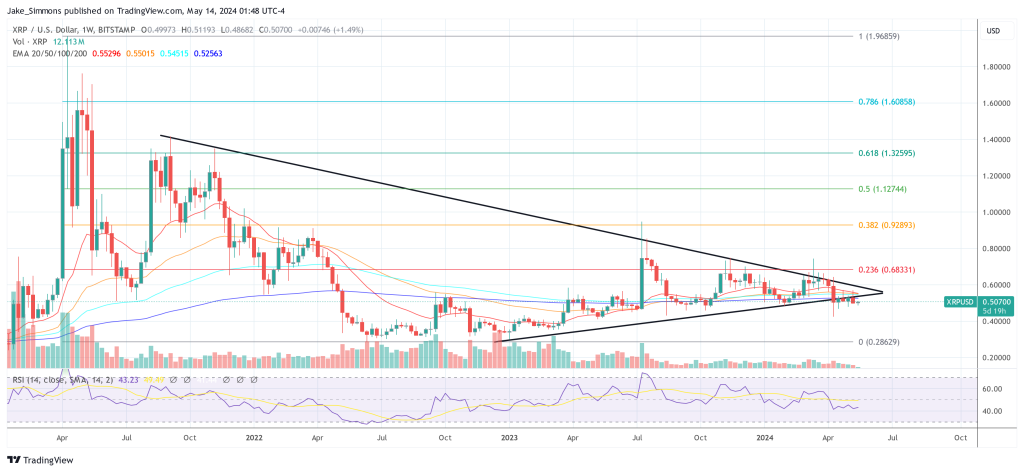ARTICLE AD BOX
In a court filing on May 13, 2024, Ripple Labs has formally requested the United States District Court for the Southern District of New York to seal various documents that were submitted in connection with the SEC’s Motion for Judgment and Remedies. These documents, collectively referred to as the “Remedies Materials,” contain sensitive financial data, including audited financial statements, revenue, expenses, and other confidential business information.
Breaking Down Ripple’s Request To Seal
Ripple’s legal counsel, Andrew J. Ceresney of Debevoise & Plimpton LLP, articulated in the letter to Judge Analisa Torres the rationale behind the request. Ceresney’s argument focuses on the potential damage to the company’s competitive position, noting, “Public disclosure of this information would be highly detrimental because it would reveal detailed information about Ripple’s financial condition, long-term business plans, revenue streams, and expense structures to the marketplace, including competitors, customers, and future business partners and customers.”
A core objective of Ripple is to seal the discounts offered to institutional buyers of XRP. The motion lays out three main reasons to justify their request for sealing.
Protection of Highly Confidential Financial Information: Ripple emphasizes the critical nature of the documents it seeks to seal, particularly its audited financial statements and related materials.
According to Ceresney, “The documents and information are non-public and their disclosure would cause significant harm to Ripple’s business interests and competitive standing.” He argues that these documents contain sensitive financial metrics that are vital to maintaining the company’s proprietary strategies and competitive position in the marketplace.
Preservation of Negotiating Power: Another significant aspect of the request is to protect the details of its financial terms negotiated with third-party business partners. The company asserts that revealing the XRP sale terms could compromise its competitive position and adversely affect its negotiating capabilities in future deals.
The motion details the potential repercussions, noting, “Revelation of the financial terms of its contracts with counterparties and customers […] could result in serious damage to Ripple’s negotiating position with future counterparties, and would cause competitors to adjust their sales plans and pricing policies to compete with Ripple in the marketplace.”
This section underscores the concern that such disclosures could not only harm its individual bargaining power but also provide competitors with unjust insights into the company’s strategic operations.
Ensuring Privacy of Non-Parties: Ripple also seeks to redact the identities of non-party entities like XRP investors, customers, and business partners, asserting that their privacy should be protected as their identities and contact information are irrelevant to the legal issues at hand and could be misused if disclosed.
The motion articulates, “The identities of these non-parties have no bearing at all on the Court’s resolution of the Remedies Motion and therefore their privacy interests outweigh the presumption of public access.” Ripple stresses that such disclosure poses unnecessary risks to the individuals and entities involved and does not contribute to the resolution of the case.
Ripple’s legal team also points out that the SEC has not opposed several of the sealing requests, which might play in favor of their motion. Citing previous cases where the court granted similar requests for sealing and redaction, the motion suggests that there is a strong precedent supporting their request.
Pro-XRP lawyer Bill Morgan commented, “a company has every right to seek to protect commercially sensitive information. In this situation, the need for Ripple to even apply to seal information on discounts arises from the SEC putting this in evidence and its weak argument that pecuniary harm is suffered by a sophisticated institutional investor […].”
At press time, XRP traded at $0.507.

.png)
 8 months ago
5
8 months ago
5








 English (US)
English (US)